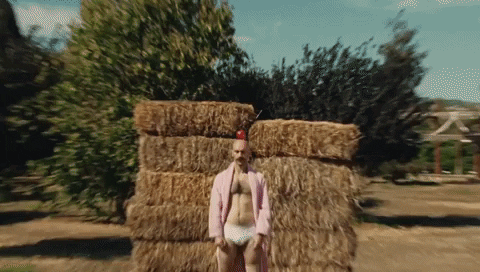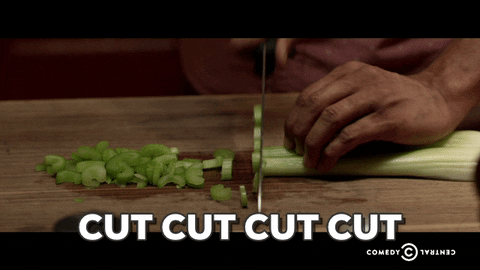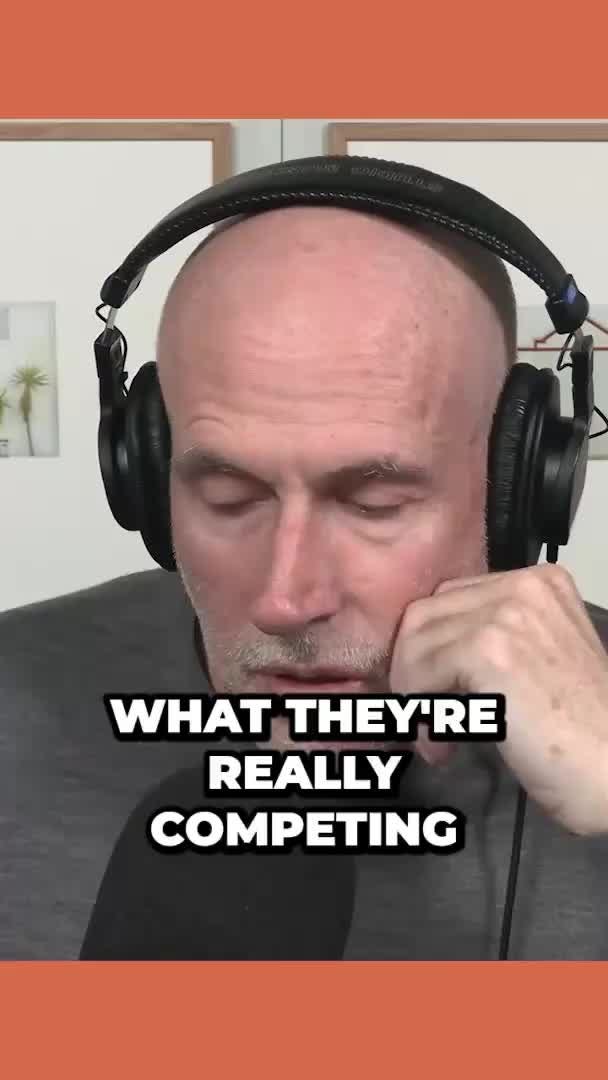The Product; The business of jeopardy; Going from paying to paid; The chasm between CCO and CEO; Jo Coates on building value; Patrick Reed's Guide to Economics; NRL hearts Tina Turner RIP; AFTV x UP
Overthinking the sports business, for money
The Product is everything
This week we launched a new series in collaboration with Twenty First Group, to coincide with the release of the TFG World Sports Rankings.
Both projects are aimed at answering a big question:
What’s the link between sporting formats and commercial success?
So much of the sports business conversation is about innovation.
Some of this is tinkering, some of it fundamental.
But how many new sporting formats have yielded the sort of returns hoped for by the various constituencies - fans, teams, athletes, rights holders, media and investors - each of whom has a different interpretation of what success is.
A list of new product innovations in recent years might include the following (you’ll have your own list):
The Hundred; F1 Sprint Races; Pickleball; Rugby 12s; LIV Golf…Turbo Tennis…
Some are old ideas backed by new money.
Some are half formed attempts at ‘capturing the imagination of Gen Z’.
Having written that list, I’ve noticed the common theme: reduction - shortening the time demanded of an audience to sit and watch them.
Is this clever, lazy or - to borrow from Gideon Haigh - does it reveal a basic lack of confidence in the sports being shortened?
Each of my list is a version of Twenty20 cricket, the single most successful sports product innovation of the last twenty years.
But is T20 a proof of concept or an outlier, which talks less to Gen Z attention spans and more about the specific sports economy of India?
I’ve sat through enough Rugby Sevens as the next T20 presentations to have my doubts.
Spoiler: The Money doesn’t like jeopardy
TFG frames sporting formats using three interconnected criteria: Quality - Jeopardy - Connection.
The creation of jeopardy is the central point imho.
This gets to the other theme of sports format innovation - hedging against risk and its cousin ‘we want to see the best versus the best’.
A point made in the podcast is that the creation of the UEFA Champions League in 1992 was a response to jeopardy.
The old European Cup had too much of it.
The big teams sometimes went out in the early rounds, much to the annoyance of their rich owners, most notably Silvio Berlusconi.
So the UCL is a hedge but a lite version of The Super League, the ultimate anti-jeopardy play.
See also:
The media rights market is a bad arbiter of sports format innovation
Part of the podcast conversation was about mistakes and how the media market is too slow to punish them.
For example, the expansion of the 2026 FIFA World Cup to 48 teams.
What if this leads to a boring, over-long product (a reduction in jeopardy, at least till the knock out rounds)?
If this is a bad decision, the theory suggests the commercial markets will punish Gianni Infantino and his senior team.
But term lengths get in the way of the theory.
The media rights market is at best a lagging indicator of demand.
So the leadership class at the big acronyms can make bad decisions and be shielded from the consequences.
But.
Things are more fragile than they may seem.
Recency bias makes it hard to imagine the Premier League falling from its current lofty perch.
But it’s position as media rights darling is predicated on clubs being allowed to spend on players like…well, like oil rich nation states…
As Omar Chaudhuri puts it on The Product, the slow decline of Serie A since the 1990s shows how sporting power shifts happen.
See Also:
We love you, but don’t ruin the thing by getting to the final: Our complex relationship with underdogs.
Three sets v Five sets: The problem with tennis formats.
Have a listen to episode one here:
Jo Coates on the two great divides in sports marketing
Divide number 1: From paying to be on TV, to being paid to be on TV
There are two kinds of sports property.
The ones which are paid for their media rights.
And the ones which aren’t, and so pay the TV channel to get on air or do a production only deal.
This is one of the great divides. And it’s about value, and the perception of value.
Jo Coates has run two sports organisations, which tell the story: England Netball and UK Athletics.
UK Athletics was a sport the BBC paid 3 million quid a year for.
Now it isn’t.
England Netball was the other way around.
Coates is very interesting on the ten years it took to turn Sky in to a paying client.
Jo Coates: I can remember when I joined, it was the grand final at Nottingham. And I was like, how many tickets have we sold? And they were like, about 400. I said, this is gonna look horrific on tv. And 400 fans for the athletes is just awful. I can remember driving around to schools trying to give tickets away and it just didn't work. So we basically said, let's strip it right back. Let's take it back to smaller venues, which the board weren't happy about.
Let's sell those smaller venues out at a normal ticket price. Then let's start putting the ticket price up. The whole plan was called The Hottest Ticket in Town. And that's what we wanted netball to be.
Not a premium price, but - this came from my Football Conference background - a price that somebody should pay to go and watch fantastic athletes. We took it back to smaller venues. We started to sell out. Then we started to premium price the ticket, to put the ticket value up. Once we knew we'd then grown an audience that we could start filling larger venues. We then started to go to The Copper Box, and we knew then we could sell 5,000 tickets. But they were used to paying a certain price.
They weren't used to paying a fiver. They were used to paying 30 something pounds. And then once we knew we'd built demand at The Copper Box, we started to have a gold, silver, bronze, which, you know, people in bigger venues will go, oh, she's not a rocket scientist, that's how you do it. But at the time, you know, it wasn't easy.
When I left, a hospitality courtside seat to watch the Roses play was £127. Then once you've got full venues, very noisy crowds, people paying proper prices, it starts to move that broadcast dial because the broadcast property looks much better.
And that's when we were able to sit down with Sky. The first round was, we don't really wanna pay, but they kept our commercial rights. The next time we went back and they said, ‘We still don't wanna pay’. We want you to pay for the production, but we want our commercial rights back. We got those back and then it went to a rights fee.
So, that whole change took 10 years. It wasn't overnight. It took 10 years to get to that point. And thankfully now still they sell out stadia, which is amazing. They're moving to the Manchester Arena. So, yeah, it works.
Divide number 2: The chasm between Chief Commercial Officer and the CEO job
The route from head of commercial to the top job is a well worn route - Richard Masters at the Premier League, Mark Bullingham at The FA, Richard Arnold at Manchester United are a few examples that spring to mind.
Jo Coates made the same journey at England Netball, and later UKA.
I just thought, well, being a CEO, that's gonna be easy. I've been a director now for a long time. I thought it's just like being a director, but doing something different. But it's completely and utterly different. When you are a director, you're not accountable for the whole organization, and you're not the external facing person. You are not the person that ultimately, at an AGM, might get a kicking if things have gone wrong.
You're not the person that goes to the club's final or the school's final and gets parents coming over and talking to you. You are not that person. So just from an access point of view, external facing, that's completely different. The responsibility level is completely and utterly different. If you've been a CEO of a governing body, you cannot appreciate the amount of responsibility you feel looking after that, it's completely and utterly different.
And I do fear that sometimes when people make a jump from being a director to a CEO, that actually there isn't a support for them. They do leadership courses and so forth…but that's a tough job. Very tough job.
Patrick Reed’s Guide to Economics
The LIV Golfer got cross during last week’s US PGA, the second major of the year.
The loose change in the cameraman’s pocket was heard.
‘You’ve lost privileges’ says Reed, ordering the cameras to be banished from (his) sight.
This begs the question of who exactly is the privileged party in this negotiation?
The highly rewarded golfer or ESPN and/or CBS, who’ve paid tens of millions to point their cameras at him until 2030.

 Tiktok failed to load.
Tiktok failed to load.Enable 3rd party cookies or use another browser
Reed might do well to listen to Scott Galloway.
This clip encapsulates the bigger problem faced by every sport, including golf.
Tina Turner, sports marketer
Unofficial Partner does very well in Australia.
And this week, people of a certain age have been in touch to mark the passing of the great Tina Turner.
She wasn’t just a great singer, she saved Rugby League down under.
Rupert Cox, rugby commentator for Sky, NBC and BT Sport: This was a game changer for Rugby League in Australia. I was a young kid in Sydney when Simply The Best was first used as a new season promo. Union was of course still languishing as an amateur sport back then and smart creative choices like this massively boosted the commercial value and audience appeal of Rugby League. One of many reasons League still rules the roost over Union in Australia. RIP Tina Turner.
NRL have a lovely remembrance here.
And thanks to Moya Dodd for flagging this: the Australian US Embassy staff do the Nutbush, ‘Australia’s unofficial national dance’.
What’s the collective noun for moaning Spurs fans?
UP co-founder Sean (top right) was on this week’s Spurs Show, with national treasure Paul Whitehouse from The Fast Show and that fishing programme with Bob Mortimer.
UP goes to The Podcast Show
To Islington.
The place was mobbed.
And I met up with one of UP’s early guests, the great Robbie Lyle (UP120), the founder of Arsenal Fan TV, which he’s grown to the Global Fan Network.
Join the thousands of people who subscribe to Unofficial Partner.
We publish two podcasts each week, on Tuesday and Friday.
These are deep conversations with smart people from inside and outside sport.
This newsletter is our way of picking up the threads, and is published every Thursday.
Our entire back catalogue of 300 sports business conversations are available free of charge here.
Each pod is available by searching for ‘Unofficial Partner’ on Apple, Spotify, Google, Stitcher and every podcast app.
If you’re interested in collaborating with Unofficial Partner to create one-off podcasts or series, you can reach us by replying to this email.










